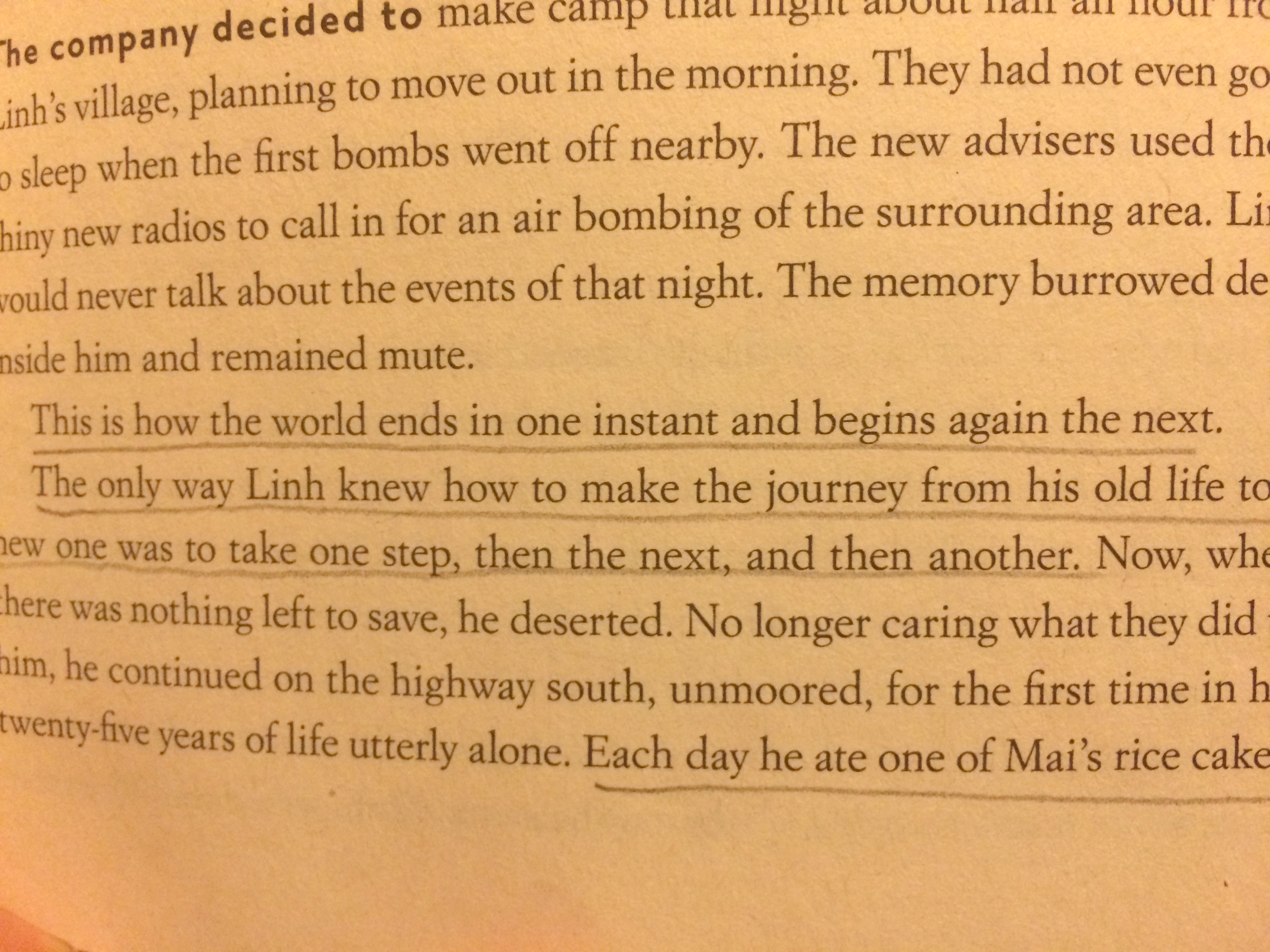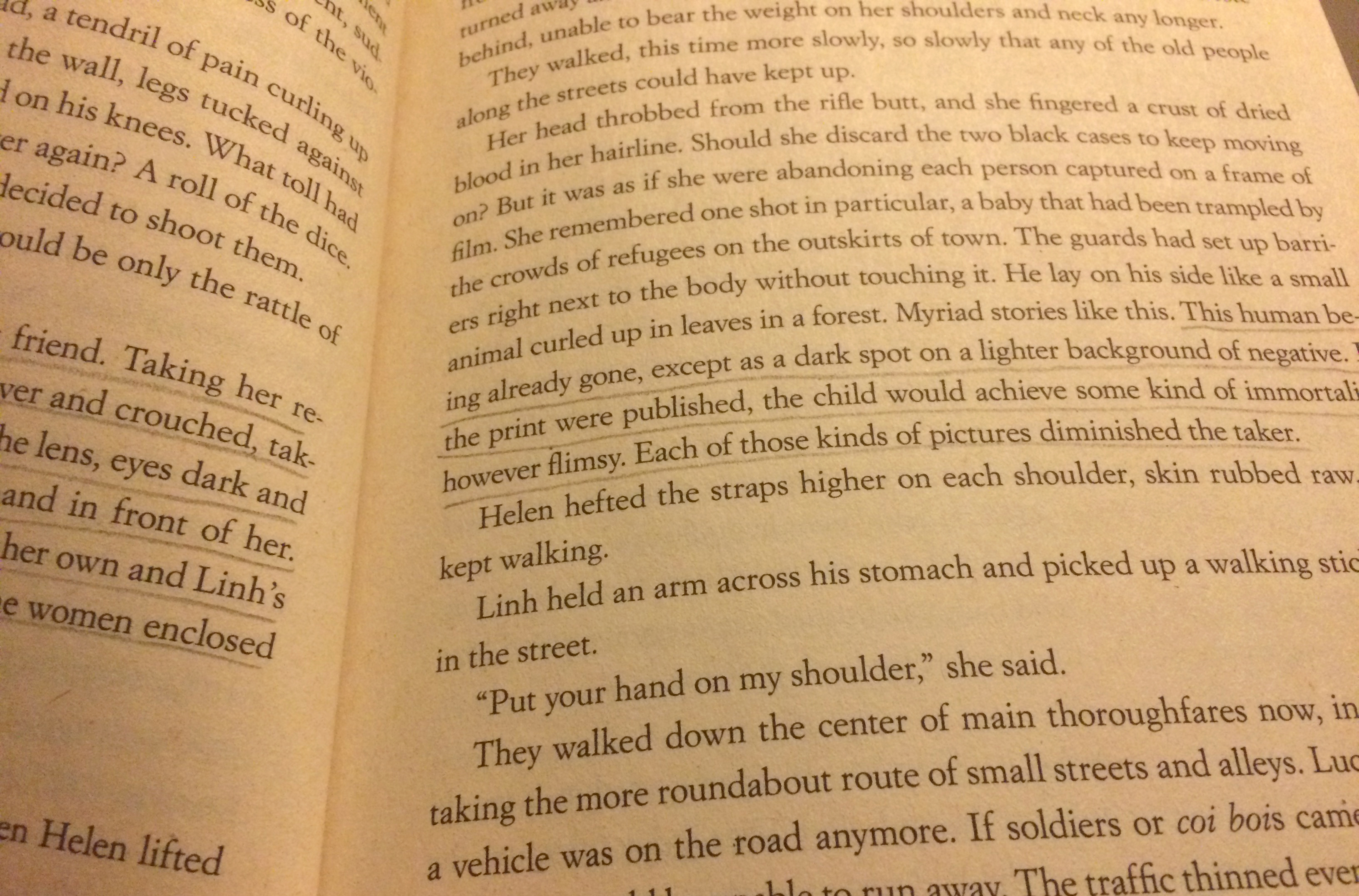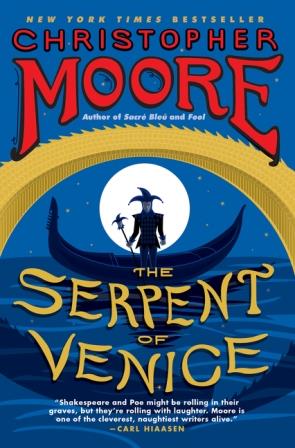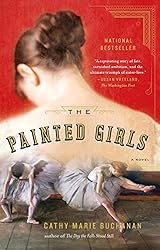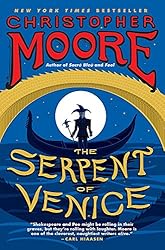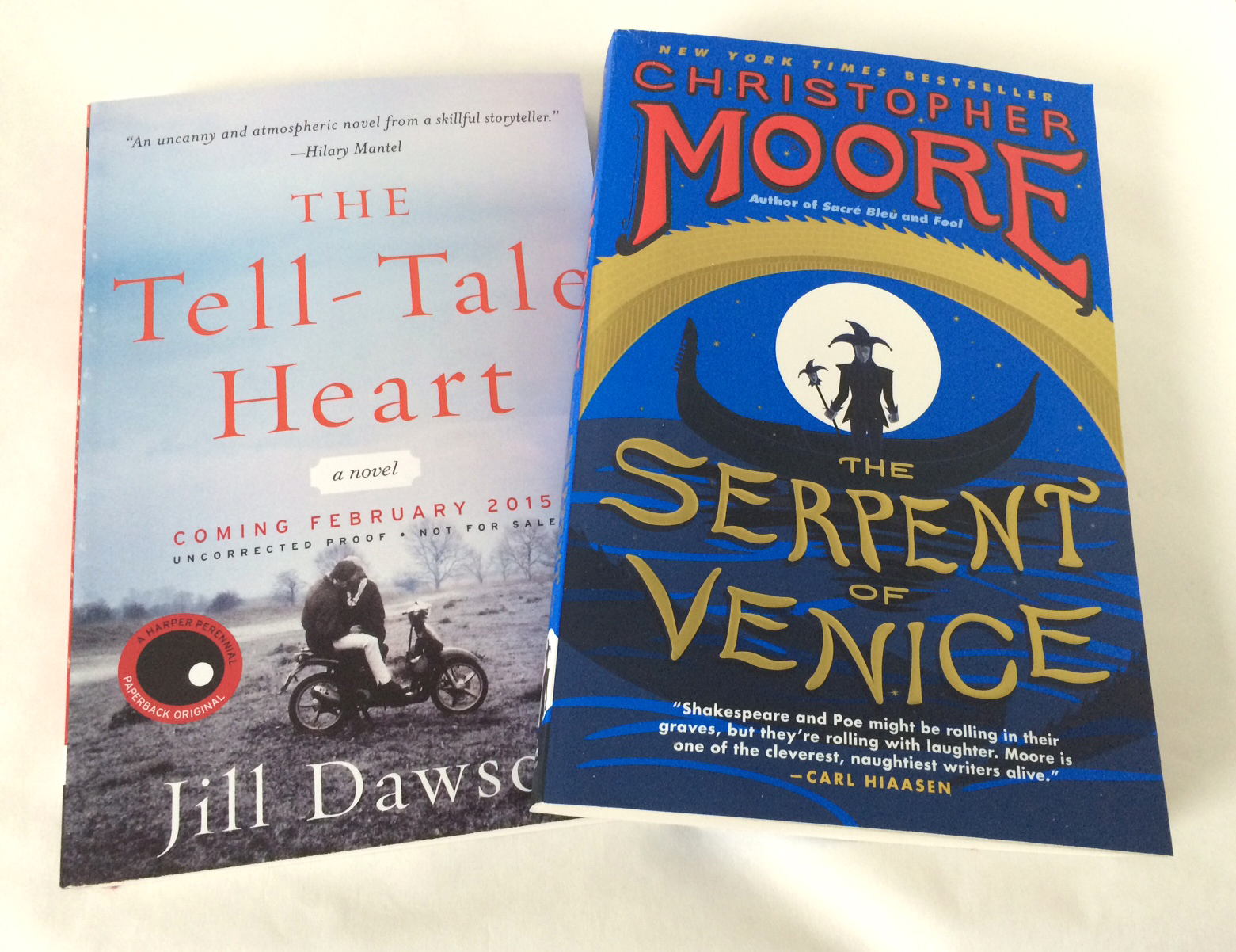I haven’t written any reviews in a couple of months as I prepared to defend my dissertation and had little time to do much of anything but that, but the good news is that I am now Dr. Huff! Here is a picture of me and my dissertation committee right after my dissertation chair referred to me as Dr. Huff for the very first time.

I can’t remember if I have written about it here or not, but I joined Noom and lost nearly 40 pounds since November 2020. One of the things I did to get active and lose weight was take up walking. I walk at least 10,000 steps each day, usually more. As I walk, I listen to audiobooks, which has pretty much been the only way I’ve been able to read as much as I have over this year. Here are some quick reviews of the books I read in May and June (so far).
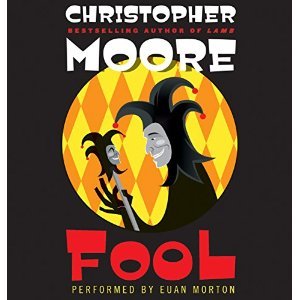 Fool by Christopher Moore
Fool by Christopher Moore Narrator: Euan Morton
Published by Harper Audio on February 10, 2009
Genres: Historical Fiction
Length: 8 hours 41 minutes
Format: Audio, Audiobook
Source: Audible
Buy on Amazon
Goodreads

"This is a bawdy tale. Herein you will find gratuitous shagging, murder, spanking, maiming, treason, and heretofore unexplored heights of vulgarity and profanity, as well as nontraditional grammar, split infinitives, and the odd wank . . . If that's the sort of thing you think you might enjoy, then you have happened upon the perfect story!"
A man of infinite jest, Pocket has been Lear's cherished fool for years, from the time the king's grown daughters—selfish, scheming Goneril, sadistic (but erotic-fantasy-grade-hot) Regan, and sweet, loyal Cordelia—were mere girls. So naturally Pocket is at his brainless, elderly liege's side when Lear—at the insidious urging of Edmund, the bastard (in every way imaginable) son of the Earl of Gloucester—demands that his kids swear their undying love and devotion before a collection of assembled guests. Of course, Goneril and Regan are only too happy to brownnose Dad. But Cordelia believes that her father's request is kind of . . . well . . . stupid, and her blunt honesty ends up costing her her rightful share of the kingdom and earns her a banishment to boot.
Well, now the bangers and mash have really hit the fan. The whole damn country's about to go to hell in a handbasket because of a stubborn old fart's wounded pride. And the only person who can possibly make things right . . . is Pocket, a small and slight clown with a biting sense of humor. He's already managed to sidestep catastrophe (and the vengeful blades of many an offended nobleman) on numerous occasions, using his razor-sharp mind, rapier wit . . . and the equally well-honed daggers he keeps conveniently hidden behind his back. Now he's going to have to do some very fancy maneuvering—cast some spells, incite a few assassinations, start a war or two (the usual stuff)—to get Cordelia back into Daddy Lear's good graces, to derail the fiendish power plays of Cordelia's twisted sisters, to rescue his gigantic, gigantically dim, and always randy friend and apprentice fool, Drool, from repeated beatings . . . and to shag every lusciously shaggable wench who's amenable to shagging along the way. Pocket may be a fool . . . but he's definitely not an idiot.
I read and enjoyed Christopher Moore’s The Serpent of Venice, which is actually this book’s sequel, so after my husband and I listened to King Lear on audio, we decided to try this. If you like Python-esque humor, you’ll appreciate Christopher Moore.
 The Mountains Sing by Nguyễn Phan Quế Mai
The Mountains Sing by Nguyễn Phan Quế Mai Narrator: Quyen Ngo
Published by Dreamscape Media on March 17, 2020
Genres: Historical Fiction
Length: 10 hours 44 minutes
Format: Audio, Audiobook
Source: Library
Buy on Amazon
Goodreads

With the epic sweep of Min Jin Lee's Pachinko and Yaa Gyasi's Homegoing and the lyrical beauty of Vaddey Ratner's In the Shadow of the Banyan, The Mountains Sing tells an enveloping, multigenerational tale of the Trần family, set against the backdrop of the Việt Nam War.
Trần Diệu Lan, who was born in 1920, was forced to flee her family farm with her six children during the Land Reform as the Communist government rose in the North. Years later in Hà Nội, her young granddaughter, Hương, comes of age as her parents and uncles head off down the Hồ Chí Minh Trail to fight in a conflict that tore not just her beloved country, but her family apart.
Vivid, gripping, and steeped in the language and traditions of Việt Nam, The Mountains Sing brings to life the human costs of this conflict from the point of view of the Vietnamese people themselves, while showing us the true power of kindness and hope. The Mountains Sing is celebrated Vietnamese poet Nguyễn Phan Quế Mai's first novel in English.
This is a stellar book, and I’m glad I listened to it as I was able to rely on the narrator’s fluency with Vietnamese. I can see why the Goodreads review mentioned the books by Lee, Gyasi, and Ratner (all of which I’ve also read). If you liked any of those books, you will like this one for sure. I read this book as my selection for the Book Voyage Challenge’s book set in South Asia.
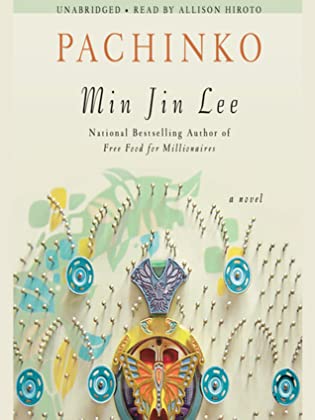 Pachinko by Min Jin Lee
Pachinko by Min Jin Lee Narrator: Allison Hiroto
Published by Hachette Book Group on February 7, 2017
Genres: Historical Fiction
Format: Audio, Audiobook
Source: Library
Buy on Amazon
Goodreads

Pachinko follows one Korean family through the generations, beginning in early 1900s Korea with Sunja, the prized daughter of a poor yet proud family, whose unplanned pregnancy threatens to shame them all. Deserted by her lover, Sunja is saved when a young tubercular minister offers to marry and bring her to Japan.
So begins a sweeping saga of an exceptional family in exile from its homeland and caught in the indifferent arc of history. Through desperate struggles and hard-won triumphs, its members are bound together by deep roots as they face enduring questions of faith, family, and identity.
I learned so much from this book. I haven’t read very much about immigration and racism outside of the United States, and this book opened my eyes to a great deal of history I didn’t know. I really enjoy multigenerational family sagas. I read this book as my selection for the Book Voyage Challenge’s book set in North Asia. I read these last two books out of order, as I mistakenly thought the book set in South Asia was for April, but it was actually the book set in North Asia.
 The Fortune Cookie Chronicles: Adventures in the World of Chinese Food by Jennifer 8. Lee
The Fortune Cookie Chronicles: Adventures in the World of Chinese Food by Jennifer 8. Lee Published by Twelve on March 23, 2009
Genres: Cooking, History
Pages: 320
Format: Paperback
Buy on Amazon
Goodreads

If you think McDonald's is the most ubiquitous restaurant experience in America, consider that there are more Chinese restaurants in America than McDonalds, Burger Kings, and Wendys combined. New York Times reporter and Chinese-American (or American-born Chinese). In her search, Jennifer 8 Lee traces the history of Chinese-American experience through the lens of the food. In a compelling blend of sociology and history, Jenny Lee exposes the indentured servitude Chinese restaurants expect from illegal immigrant chefs, investigates the relationship between Jews and Chinese food, and weaves a personal narrative about her own relationship with Chinese food.
The Fortune Cookie Chronicles speaks to the immigrant experience as a whole, and the way it has shaped our country.
This book was given to me in a wonderful book swap I participated in via Twitter. I probably never would have picked it for myself, even though I love reading food histories. I learned a lot in this book, not the least America’s adoption of Chinese-American cuisine. I knew some of the fraught history with immigration, but there was still much to learn on that front as well.
I also re-read King Lear and A Thousand Acres.

